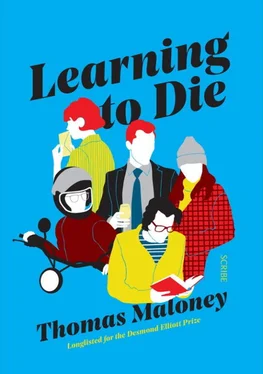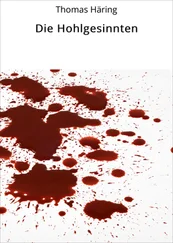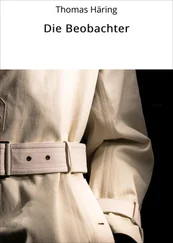He hears nothing from Brenda for two days, and is feeling the deep, nascent prickles of fraternal worry when her answering signal arrives: aye . Nothing else, but that’s enough. He means to text James, but finds himself calling instead.
‘I’ve had a message from you-know-who. She’s okay.’ James doesn’t speak for a few seconds, but breathes and whispers something to himself. He really was worried about her.
‘Are you sure?’ he says at last. ‘Did she say anything about me?’
‘I don’t think she’s in a talkative mood. But yes, I’m sure she’s okay. She has her ways of dealing with things. How about you? Are you alright?’
‘Me?’
‘Yes — you. How’s the book coming along?’
‘I’m — I’m having a rethink.’ His voice trails off weakly. Then he adds, ‘Tell her I’m sorry, if you speak to her. Tell her to call me.’
Mike feels unexpected sympathy for this waster who stole his property, upset his sister and insulted his way of life — at least, he takes it for sympathy.
‘Listen. James. I have a well-appointed spare room here. En suite. Objets d’art. Heaving booze cabinet. Why don’t you come down for a few days? I think we’d have fun.’
He takes it for sympathy, but it could be a cry for help.
Dan is travelling to work by train and bus. Nat gives him a lift to the station, and picks him up. People surrender their seats when they see the crutches; the ingenious bus lowers itself to help him disembark. The arrangement works. For now.
He’s helping the tuberculosis team again. It took them months of painstaking effort to create their single tiny crystal of the crucial protein — the infuriating enzyme that helps TB to defend itself against antibiotics — and already it’s been damaged by the harsh glare of the X-rays. There is disagreement about how to proceed. Dan is proposing a trial of the new microfocus beamline, but he admits they may only get one shot. If they illuminate an even tinier volume of the crystal, he argues, they’ll be right inside the damage zone, right in the eye of the ionisation storm. The crystal will be toast, but they might just get a clean image.
His colleagues all know about the diagnosis now, of course: the sprained ankle story was never going to wash for long. There’s pity on both sides as each unconsenting initiate receives his or her share of the knowledge burden and struggles for the right words. Some Dan tells himself, matter-of-factly — these have to react on the spot, and do so in unpredictable but telling ways — while others hear second-hand and have time to think of an appropriate response. The latter suffer the most: many, especially men, find their courage fails them and say nothing at all, but just conduct their interaction wearing an expression of exaggerated sympathy and avoiding any trace of humour. It makes for long days.
Among his wider circle of family and acquaintance, the scientifically illiterate often suggest alternative treatments. ‘Don’t believe the doctors,’ they urge, brushing aside the self-evident wonders of biomedical research. ‘All you need is a deep detox. Let me send you some links.’ A few tempers have flared — Dan’s well-meaning aunt is no longer speaking to his father because of the latter’s curt dismissals and warnings off. Even Natalie, usually a bullshit bloodhound, wavered after too much internet exposure and had to be steered gently away from the soft verges of quackery and back to reality.
Reality is palliative physio and unpronounceable drug that might give him an extra couple of months — a well-meant biomedical gesture that he chooses to accept with good grace.
James F. Saunders has shaved his head. An odd sensation, this cold, naked bonce — he keeps wanting to rub it with a towel. Fitting, though. Everything is fit and proper. For servicing the internal works he can’t stretch to more Laphroaig, but the Spar offers a range of affordable substitutes. Cleansers.
He presses rewind, play, fast forward, play, intent on his mission to find the start of a particular piece of music. Years have passed since he sold his once-prized CD player to pay the rent, but at Christmas he found this dusty thing under the bed at his parents’ house, together with a stack of hand-labelled tapes. Click, clack, whir. Rewind an obsolete term now, a lost metaphor.
Yes — literature being a roofless mockery of a refuge, James has turned to music, his oldest love-hate. His attachment spans several genres, but he has been clinging most tightly to certain albums of the Australian singer-songwriter he calls the Boatman. Any therapeutic benefits have, as usual, been impaired by his envious horror of finely executed art of any kind.
Despite sharing genes with his fiddler uncle Joe and a grandmother renowned for belting out fado, James was born with no trace of musical ability. He recalls feeling, even when Becks sang in the shower — adding her own jazzy spin to an apparently vacuous pop ditty — the same hunted, despairing shiver of inadequacy induced by a page of Nabokov at his best.
Ah, here: the pregnant hiss. Just time for a precursory breath, and it begins. Not the Boatman now — James has worn those songs out — but the last resort: his private anthem — the work he reveres above all others, above even the Exile’s greatest novel. Reverence was, indeed, born in him the moment he first heard it, twenty years ago.
This close-guarded treasure is quite flawless, like no book or poem James has ever read: flawless like the freak apple he once addressed in fifty consecutive prose variations. Yet, unlike the apple, it remains flawless for eternity. He knows the composer’s name, the gist of the text, the distant century in which it was first performed — but nothing else. He’s never discussed it, never read a review of it, never listened to a jaded lecturer picking it apart, never heard it chosen on Desert Island Discs . Knowledge can be destructive; a second-favourite, Mozart’s Requiem , once prized by James for its power to evoke a visual panorama of spreading wings, beams of light, precipices, has never sounded the same since his father, a man of little culture but much trivia, gleefully informed him that it wasn’t all the master’s work. It was, in fact, finished off by some random punter. Horrible.
But this piece, the private, secret anthem (or motet — let’s not quibble), the one now serenely unfolding, unrolling its Latin syllables, stands in unsullied splendour. Why this obscure, uncelebrated piece, above all others? Which root of his being does it reveal?
He might as well ask, why Becks? Why Brenda? Why Brenda? Why Brenda? He might as well write a fucking autobiography. When the music stops, he snatches a sealed envelope from his desk and blunders down the stairs.
One delicately lingering Monday evening after a productive day at the lab, Dan waits at Didcot station for his train home. A repurposed wall holds an original timber-framed window newly painted in white gloss but lacking its panes: in their place a shock of unimpeded air that draws and fascinates the eye. Perfect transparency.
Dan smiles. Transparency is what he has too. He rejected the childish notion of fate at the age of nine, and so it has been humbling to have his own revealed in terrifying detail. Terrifying is the word for the sheer extent of incapacity that motor neurone disease has in store for him. But Dan will not yet submit to being terrified. The train arrives, its carriage windows open to admit the novel warmth of spring, and as he finally settles into his seat — another small battle behind him — he compares his own looming, creeping incapacity to other varieties.
There is incapacity that strikes without warning: car, horse, assembly line, climbing frame — a momentary freak that transforms a life. Paralysis, blinding, loss of a limb. How those few seconds — so easily avoidable but irrevocable now — would needle and torment! He has been spared that, at least: there’s nothing he could have done. Then a different, bitterer flavour of trauma awaits victims of violence or recklessness — of drunk drivers, jealous partners, bungling thieves. Hatred an additional burden for them — seeing justice done. To be free of hatred, as he is, to be a victim only of the universe’s general injustice: a profound mercy. And the universe can do worse, of course, can condemn the very young who haven’t even had a chance to live. He’s had half a chance.
Читать дальше












